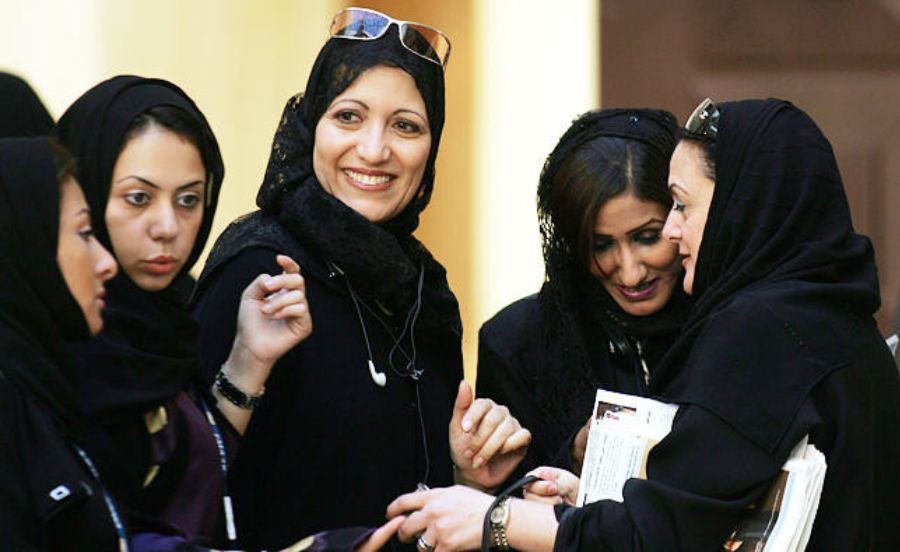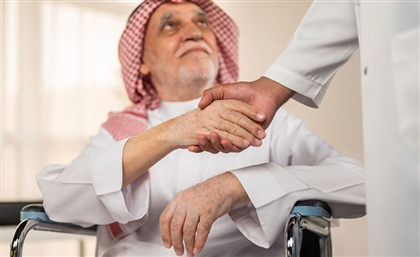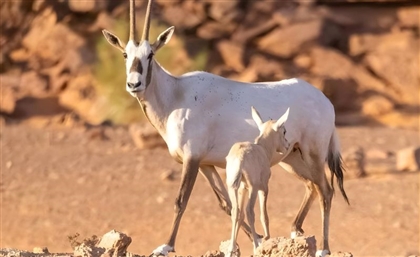How Women Entrepreneurs are Breaking Barriers in Saudi Arabia
Around 45% of SMEs in Saudi Arabia are led by women according to Monsha’at, but this growth did not happen overnight.

A country once known for its restrictive policies towards women, Saudi Arabia is now witnessing a surge in female entrepreneurship as part of the Kingdom’s ambitious Vision 2030 plan to diversify the economy, and support women’s empowerment initiatives and policies.
It is estimated that 45% of SMEs in the country are being led by women, according to a recent report by Monsha’at, Saudi Arabia’s official SME general authority.
But this change didn’t happen overnight. It was in the making for nearly a decade as the country implemented various economic and social reforms, supporting women to take the leap to entrepreneurship and drive private sector growth.
“I think it’s important to note that one of the misconceptions is that when Vision 2030 was announced, all of a sudden, women in Saudi woke up,” Marriam Mossalli, founder of communications agency Niche Arabia, tells StartupScene. “We've been working and we've been quite active for years.”
Running her consultancy firm for more than 13 years, Mossalli has witnessed firsthand the evolution of the country’s startup scene. She recounts the days when she could only take photos of food at events because she couldn’t show women, to now having laws to encourage women to work and launch their own businesses.
The shifting attitude towards entrepreneurship is key to this growing trend. According to the 2021-2022 Women’s Report for the Kingdom of Saudi Arabia, conducted by the Global Entrepreneurship Monitor (GEM), 95% of Saudi women listed entrepreneurism as a good career choice.
LONELY GAME
Although a trend may be apparent, women are still the minority in the country’s startup ecosystem.
Arwa Shaffi, Program Director at The Garage, is seeing more women in early-stage rather than late-stage startups. “We see them more in the idea stage, we see them way more in hackathons, in the MVP or protype programs, but then they do not continue for various reasons,” she says.
She believes one of the reasons that women don’t continue on their startup journey is because the business landscape is still very much male dominated, with deals typically happening in male settings. “A lot of deals are closed in Diwaniyat or Esterahat,” Shaffi explains (Diwaniyat are reception areas where men usually receive business colleagues and guests). “It’s not a female friendly environment and females wouldn’t go there. So, that naturally reduces their opportunity to network and close more deals.”
In response, she wants to see more women create networks to support female founders. While startup programs, funding opportunities and government initiatives are important, a dedicated women’s support network is crucial to sustain female entrepreneurs’ long term, helping them overcome common challenges and hurdles.
“Entrepreneurship is a very lonely game,” Shaffi says. “But as a male, the likelihood of you finding other male founders whom you can befriend and confide in is very high versus when you are a female. It’s rarer, you have less personal support. That struggle, I think, makes it harder to sustain and continue being an entrepreneur.”
FUNDING STILL LAGGING
Despite having less women in the startup space, many still struggle with funding. This is not unique to entrepreneurs in Saudi Arabia, but is a common challenge among female founders across the globe.
According to data by Pitchbook, women-founded startups accounted for 2% or less of venture capital (VC) funding in Europe and the United States in 2023.
In the Middle East, it is no different. Funding for female-founded startups has plummeted last year, reaching $19 million, or 0.47%, of the total raised in 2023, according to a report by Wamda. This is a staggering drop of 63% compared to 2022, when female-founded startups raised a total of $52 million, or 1.3%.
The decline in funding is not strictly attributed to the founders being women, but is largely the result of macroeconomic conditions, including inflation, geopolitical conflicts and supply chain challenges.
Shahad Geoffery, founder of tech startup Taffi, compares today’s funding environment to when she raised her first seed round in 2022. “When we fundraised our first round, the market conditions were completely different,” she says. “Fundraising has become a challenge for everyone. Even VCs are struggling to raise funds. Hopefully this year we’ll see it recovering,”
To level the playing field, mandates to invest in women-led startups can be helpful, at least until the landscape starts to become more balanced. Salwa Radwi, founder of Web3 Nuqtah, believes that although women do not necessarily need separate accelerators or programs, investors should pay more attention to female startups. “If investments start happening as a mandate, by default you’re enabling more women to start,” she says. “That will in return make them good enough, and then you won’t have to have it mandated. It will become the norm.”
Meanwhile, some women have been taking matters into their own hands. For Mossalli, she’s been advising female entrepreneurs for years through her nonprofit organization Under the Abaya. This year she also launched C-Suite Advisory to invest in female-led startups. “I am now actively investing in female startups,” she says. “I think it's kind of like putting money where your mouth is. I want to empower women, and I think the only way to combat the funding challenge is to have more female angel investors.”
FUTURE LOOKS BRIGHT
Regardless, the outlook for the Kingdom’s female entrepreneurs seems promising. With Saudi Arabia now at the forefront of the region’s startup ecosystem, and funding surpassing $1 billion last year, the environment is ripe with opportunity. The kingdom is also laying the groundwork for startup incubators and accelerator programs to support more entrepreneurs.
“With more resources in the market, women have more of an opportunity to at least compete,” Radwi says. “So, I think that by default, the funding and the available resources is enabling more female entrepreneurship in the country.”
But while funding and resources are important, Radwi believes that support from the ecosystem is ultimately what creates a thriving startup space. Since launching her startup in 2021, which was initially a graduation project, she has encountered several people that helped bring her startup to life and take it to the next level. She sees this same support apply to other female founders as well.
As the startup ecosystem continues to grow and support female entrepreneurs, it is only a matter of time before the kingdom starts seeing more successful ventures being launched by women. “People want to see us succeed, and help us to move forward,” Radwi says. “And that’s being done with the Saudi vision.”
- Previous Article Italian-Palestinian Duo No Input Debuts Eponymous Electro EP
- Next Article Travel Across History on Egypt's Most Iconic Bridges



























